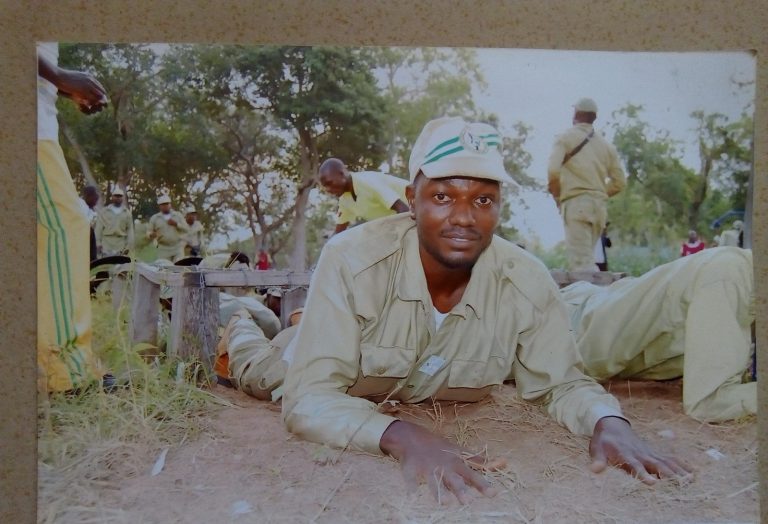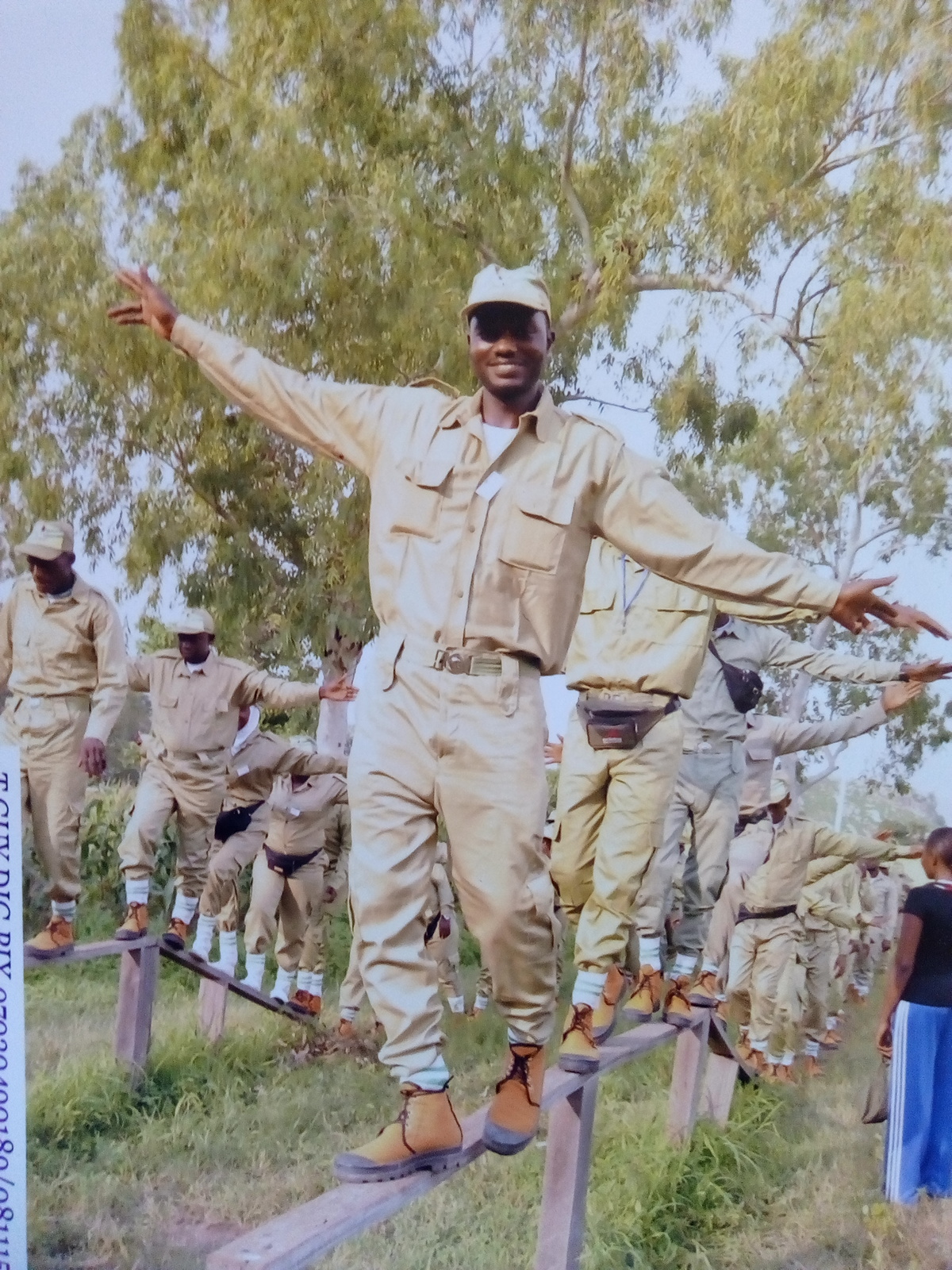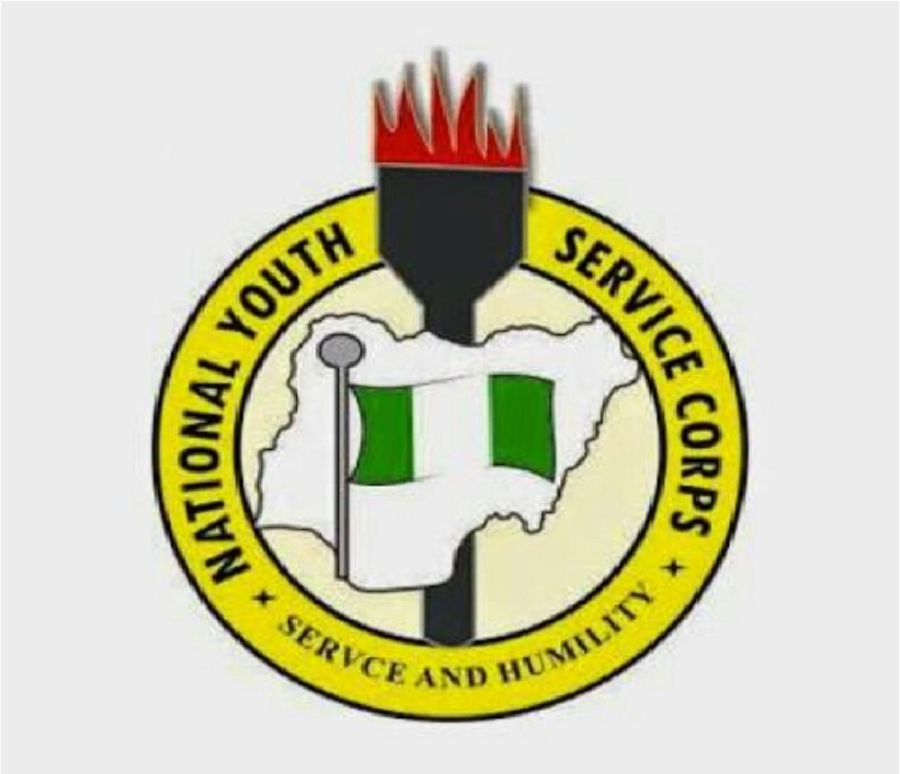
By David Gani
“But remember this, the sun that shines today is the sun that shone when thy father was born, and will still be shining when thy last grand child shall pass into the darkness”. (The Richest Man in Babylon, 2007:16). Paraphrasing, ‘the hardship corps members suffer today is the same their predecessors suffered, and will still be there when new corps members are deployed’.
Trained to serve ‘in the sun or in the rain’; and in the course of eleven months, our young and educated citizens are mandated to build a virile nation, and at the same time are buffeted by the need to survive some strange terrain and circumstances – chiefly economic.
Register for Tekedia Mini-MBA edition 19 (Feb 9 – May 2, 2026): big discounts for early bird.
Tekedia AI in Business Masterclass opens registrations.
Join Tekedia Capital Syndicate and co-invest in great global startups.
Register for Tekedia AI Lab: From Technical Design to Deployment (next edition begins Jan 24 2026).
As a victim of this circumstance, serving in one of the most rural communities in Nigeria, I will briefly share my experience which will serve as my reason for recommending the establishment of Consumer Cooperative Stores, CCS, in all the seven hundred and seventy-four local government areas (774) of the country for corps members especially for those serving in areas of high level of poverty and little or no access to basic social amenities.
Like every young and patriotic Nigerian graduate, I got the clarion call, and with gusto I responded to the voice of Fatherland to serve in Kurmi ( a Hausa word for forest or bush ) in present day Taraba State located in northeast Nigeria. Kurmi is one of the sixteen (16) local governments in the state. It boarders Cameroon to the south and has a landmass of 4,354km². Just for emphasis, Lagos state is 777km² smaller in size. The geography of Kurmi is abundant with mountains and rocks, valleys and huge water bodies, forests and rugged terrains. Most of the inhabitants are farmers and pastoralists. The basic social amenities we take for granted in the city were all lacking. Not a single bank, no tarred road, no electricity, no pipe born water, no standard restaurant, climbed hills and mountains for phone network. During my service year, 2014/2015, we numbered 130 corps members in the entire local government.
By all standard, city life is expensive vis-à-vis rural life. But on the contrary, the reverse is the case for corps members serving in least developed communities, partly, due to the huge cost of providing city luxuries to rustics; the incentive is not juicy for businessmen. To appreciate what we went through, Table 1 below is a snippet of the cost of living for an average corps member in Kurmi.
Table 1: Prices of Necessities Across Kurmi and Lagos, 2014/’15.
| Goods and Services | Quantity | Kurmi | Lagos | Difference |
| Sachet Water | 1 bag | N200 | N70 | N130 |
| Egg | 1 | N40 | N20 | N20 |
| Trip to Bank | 1 trip | N2000 | N0 | N2000 |
| Recharge card | 1 card | N120 | N100 | N20 |
| Kerosene | 1 litre | N200 | N140 | N60 |
| N2,230 |
The distance from Baissa, the headquarter of Kurmi to Takum( a local government contiguous to Benue State, the only one that has a bank amongst a cluster of local administrations ) is 98.5km. By comparison, it roughly equals the distance between Maryland in Lagos State to Abeokuta in Ogun State. The only tarred road on our quest for monthly cash withdrawal and provision is from Sabon Gida Tukura, the last town when leaving Kurmi. The frequency of our involvement in motorbike accidents was worrisome. One time a colleague suffered a broken tibia. On one of my trips the accident I had was terrible. Cause: the bike rider was under the influence of Tramadol and slept off while riding. I suffered a broken rib with deep cuts and grazes that required stitches. To minimize risks, we pooled funds to hire a bus once a month.
You may be thinking, ‘it is normal for manufactured goods to be expensive in such a place, and local produce should compensate’. Nay! In the market place, the locals, though nice and accommodating, transacted with us under the false assumption that we had fat purses. When we asked, ‘Why is your palm oil this expensive?’ The response was always, ‘Are you not a corper? You have money. The federal, state, local governments, and your PPA all pay you.’ Trying to convince them that only the federal government paid us and our PPA gave us monthly kerosine stipend of N1,000 will not yield much. A few corps members depended on monthly subsidies via transfer payments from home.
In the light of the foregoing, and with gladness at the adoption and the implementation of my earlier proposal to the government on the need to create NYSC Farms in the six (6) geopolitical zones and start posting corps members to be productive https://guardian.ng/features/nigeria-agriculture–and-nysc. And https://m.Facebook.com/officialnysc/photos/a.9713654) I therefore use this medium to make a second recommendation to the government on the need to create the National Youth Service Cooperative Society. I am aware of the recently upward review of corps members monthly allowance from N19,800 to N30,000. I commend President Muhammadu Buhari for his empathy and swift consent to the bill. Sadly, as we all know by economic trend, soon the general price level will rise and swallow up the expected real positive effect on disposable income. This is because our productivity lags behind inflation growth. Since the wage upgrade, the polity have been debating the market value of N19,800 and N30,000 with respect to purchasing power parity, PPP: the determination of exchange rates between currencies in the long run by the amount of goods and services each can buy. Please do not think that I have digressed from my theme, I am heading somewhere. Follow me…
Using the PPP concept, I will show the basket weight of goods and services the former wage of N19,800 demanded in year 2011 when it came into force, and also, how much it can buy in 2019 just before the raise with respect to the new wage of N30,000. Please be mindful that the PPP is not limited to the comparison of the market worth of two or more currencies in a particular period, it is also used to compare the relative values of a single currency in two or more periods. See Table 2 below.
Table 2: Purchasing Power Parity of Old and New Minimum Wages for Corps Members.
| Variables | 2011 | 2019 Before | 2019 After |
| Wage (N) | 19,800 | 19,800 | 30,000 |
| Dollar:Naira | 1:150.5 | 1:360.6 | 1:360.6 |
| Exchange ($) | 132 | 55 | 83 |
| 50kg of rice (N) | 7,500 | 15,000 | 15,000 |
| % Cost of Rice | 38% | 76% | 50% |
From the table, a corps member in 2011 used 38% of her allowance to buy a bag of rice. Before the wage increase in 2019, 76% of the same allowance was used to buy a bag of rice. After the raise to N30,000, a bag of rice is valued at N15,000, that is 50% of the new wage. Thus, we can authoritatively infer that, the 26% improvement in corps members wages from N19,800 to N30,000 should be the singular reason for jubilation in the service corps. But this excitement would be considered as “money illusion” when we come to terms that the market value of N19,800 in 2011 is 63% higher than the value of N30,000 in 2019, dollar-wise. My purpose for this little analysis is to prove that the gains of the new minimum wage is unsustainable in the long run. The economic future will be harsh and can only assume a desirable form based on what policy makers do today. If they see value in my proposal, then the following gains would be reaped.
The first benefit of the ‘Corpers Consumer Cooperative’ is a direct improvement on their standard of living. Located at each local government headquarter, corps members who live far off can take advantage of their monthly Community Development Service, CDS to get provisions at whole sale prices through cash and electronic means and even benefit from credit sales. They can also borrow cash. This will eliminate the risks of traveling to a distant town for financial transaction and shopping.
Second, it will address the shortfall in the allocation of corps members to non urban settlement occasioned by requests for redeployment to places of better opportunities. The need for corps members in rejected places can be compared to the demand for technical know-how and expatriates in the construction of railway, dams and airports for the country. There is a village in Kurmi called Bente Gilead. This community has tried to get corps members posted to their community for some years without success. Finally, we gave them two. And they danced for joy. ‘At last, our children have gotten teachers!’, they exclaimed. I later visited seeking the welfare of the duo, and confirmed, truly they were the only teachers in a ramshackle school.
There are abundant opportunities for wealth lying untapped in the least developed regions of the country. When highly skilled and knowledgeable aliens from industrialized countries migrate to Nigeria, they usually command the best economic benefits because they are not at par with our indigenous labour. Nigerians who emigrate to these countries end up doing odd jobs rejected by the citizens of the host country due to labour differential. The Corpers Cooperative will be a bait and assistance to corps members to not only serve but prosper in the bush. There are portions in the NYSC Act that provides for economic tendencies. Section1 subsection 3d: to enable the Nigerian youth acquire the spirit of self reliance by encouraging them to develop skill for self-employment; subsection 3e: to contribute to the accelerated growth of the national economy; subsection 4f: that members of the service are encouraged to seek at the end of their one year service, career opportunities all over Nigeria, thus promoting the free movement of labour.
“Life consists of a number of opportunities and great opportunities do not come knocking on people’s doors. Whoever wants such opportunities should grab them when they arise for his people and for himself.” (Rashid Al-Maktoum, Mohammed. My Vision, 1st ed. Motivate Publishing, 2012 ). I guarantee you that waiting after service to seize an opportunity will be unwise. The Corpers Cooperative will assist its members with soft loans and other assistance to be gainfully employed before rounding up service and graduating into chronic unemployment that will hit 33.5% by next year, 2020. This fact was from the lips of the former Minister of Labour, Dr. Chris Ngige.

The society will create more commercial farmers, increase, and improve our exports in the long run as more fallow lands would be cultivated by corps members serving in villages. Back then I had a few colleagues that got plots of lands on which they farmed vegetables and sold on market days. They used the proceeds to cushion the high cost of living. Can you imagine the returns to scale these dudes would have had if the Corpers Cooperative had existed? They were willing to settle down in Kurmi but the allowance had stopped coming and no access to loans to specialize.
Again, a nationwide Corpers Cooperative will decelerate the geometric growth of unemployment and accelerate the arithmetic growth of employment in the economy. Because Nigeria’s employment statistics induces migraine, I will not quote much here. The average number of graduates churn out by Nigerian universities each year is said to be 500,000. The number is greater when we add foreign schooled. Out of that number, the NYSC temporarily employs 300,000 and after one year they join the over 30 million unemployed. If you are a serving, prospecting corps member, and undergraduate reading, do not be apprehensive about the future, the government has its economic hat on. The Central Bank Bank of Nigeria recently disclosed its plan to start providing loans to corps members after service. A lofty initiative! Seminal when compared to the tinkering of extending the service to two years, postponing the evil day. I strongly advice the CBN to look at the possibility of starting now by adopting the Corpers Cooperative model because ‘Opportunity is a haughty goddess who wastes no time with those who are unprepared (Clason, George S., 2007).
The Society will be a panacea to the problem of rural-urban drift and simultaneously encourage urbanization. Humans behave like ants. Wherever you drop sugar, in no time an army of ant will migrate to that location. The regions in this order of development Southwest, Southeast, South south, Northwest, North central, and Northeast attract corps members in varying numbers. If well equipped economically, they will be able to catalyze the speed at which the last three zones race to develop. They will be able to attract awareness and investment as they explore the hinterland.

The final but not exhaustive benefit is that corps members would inspire the next generation through CDS. The CDS as a major tool of the Scheme is instrumental in the execution of social and infrastructural development programs in host communities. Projects are executed, traditional system, processes, and practices have been improved. But by my evaluation, the greatest CDS corps members bequeath are dreams, hopes, and faith through role modelling. Reason. During my time I realised that most of the youths in the community cannot pass external examinations like JAMB and WAEC despite several attempts. Many become parents before finishing school. The ones who dream do not go beyond the State. The most intelligent and teachable are those in JSS 1 to 2; but as they advanced through the classes their minds regress forcing them to graduate into subsistence farming, commercial motorbiking, carpenters, etc. Corps members are the change agents that can reverse this ugly trend through appropriate guidance. But they shy away from wherever they are needed due to personal need for survival. A Corpers Cooperative is needed to sustain these catalysts. Therefore, the greatest legacy for any corps member is to accept to go to the hinterlands and inspire these kids early. Let them know they can be you – an economist, a lawyer, a doctor, a pharmacist…the president.
I will draw the curtain in the next few paragraphs on the structure and operations on the envisaged Corpers Cooperative. The society will not demand much from the government’s limited resources; it’s designed to work on the principles of volunteerism, and the channeling of the existing provision of the CBN through the National Cooperative Development Fund, NCDF to the Corpers Cooperative. The structure should take the shape of the NYSC hierarchy where the National Cooperative Coordinator would be domiciled in the Office of and reports to the NYSC DG.From here, supervision flows down to zonal coords to state coords to local government inspectors and to the owners, corps members.
To kick start, each local government will provide a store in a good and safe location in its headquarter. Each state will provide a state warehouse where provisions would be temporarily stored before distribution to individual local governments. There will be six warehouses in each zone to supply the states in the respective regions; and a very large warehouse in Abuja to supply the regions in cases of emergencies. Each store will stock only essential commodities and offer financial services and investment opportunities like shares for corps members to become owners. Initial endowment to be provided through a presidential luncheon where good spirited enterprises, philanthropists and citizens, the CBN and concerned public enterprises. Major logistics companies will volunteer once a month to move the goods from point A to B. The NNPC will provide free fuel to vehicles conveying the society’s goods, and security will be provided for consignments.
Each store is to operate like a standard retail store selling to all categories of customers with preference to corps members in the areas of credit sales but not free goods, etc. The monies realized from the initial stock endowment will be used for replenishment and reinvestment.
At this point, I guess my proposal rings a bell about the Nigerian National Supply Company, NNSC, a monopoly buyer in the 1980s and how it failed. It was established to stabilize prices of essential commodities to the man on the street. Its failure was on the account of interference with market forces and corruption of its officials. This should not make one sceptical about the feasibility and viability of this proposal.More about it, see Ewa and Udu ed. New Systems Economics 11th ed African FIRST Publishers Limited, 2005.
The Corpers Cooperative will not toe the part of the NNSC because it is different in scope and operation, and also, it would be handled by one of the most disciplined and least corrupt institutions in the country, the NYSC. On a final note, my motivation for proposing the Corpers Cooperative is born out of the economic, social and physical challenges we faced and are still facing in hinterland of the country. Since I could not achieve this in Kurmi, I humbly disclose it to the government through the NYSC. I hope the government sees value in it.
Yours in service to Fatherland.
David Gani



